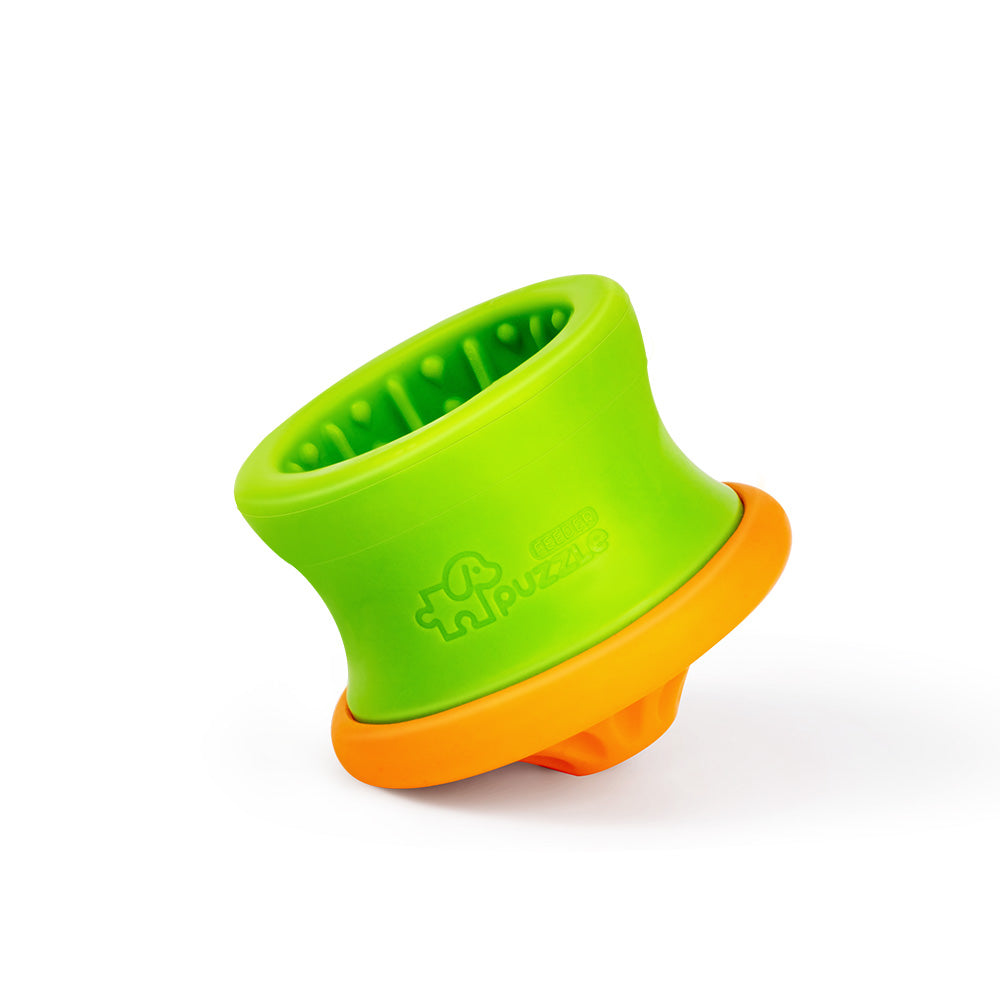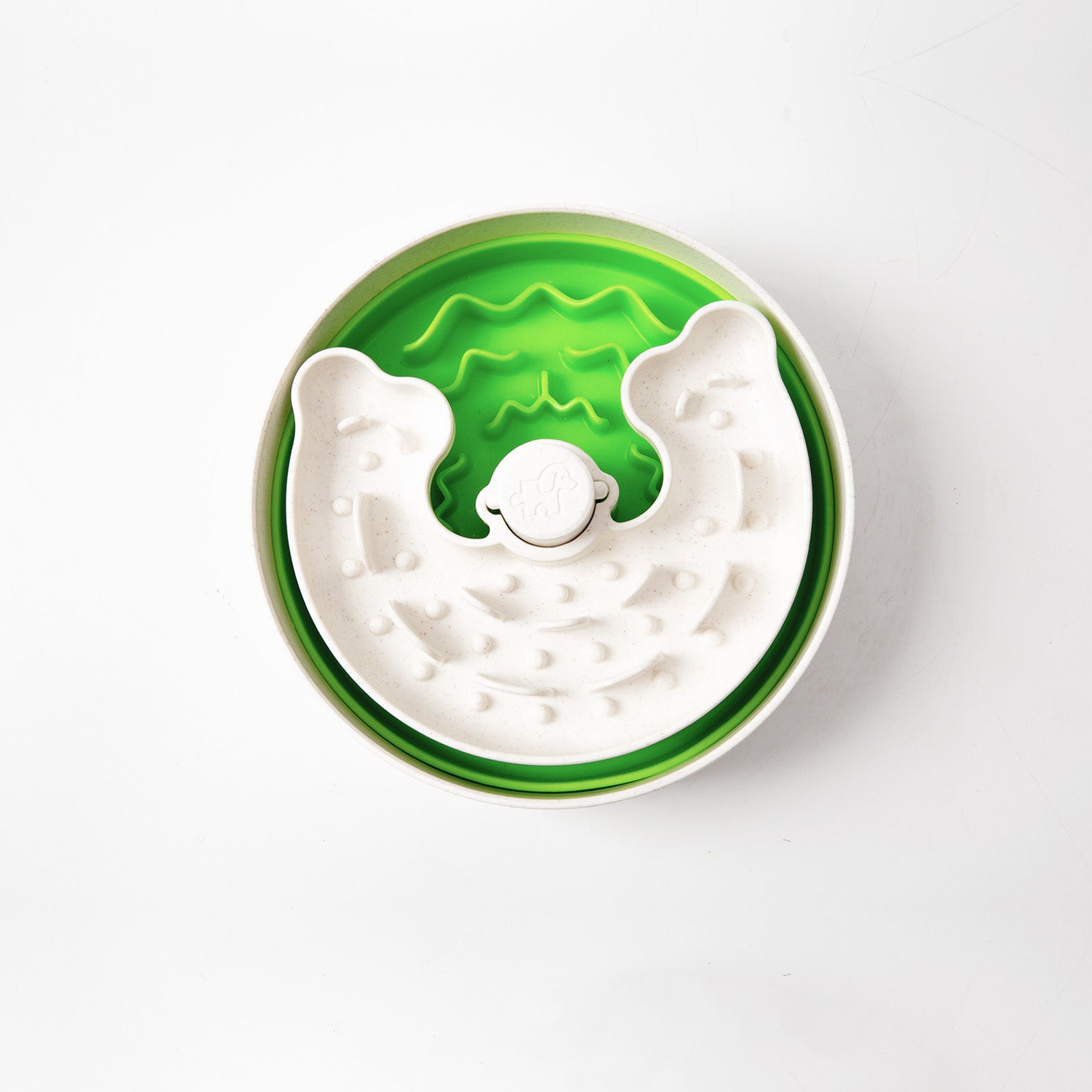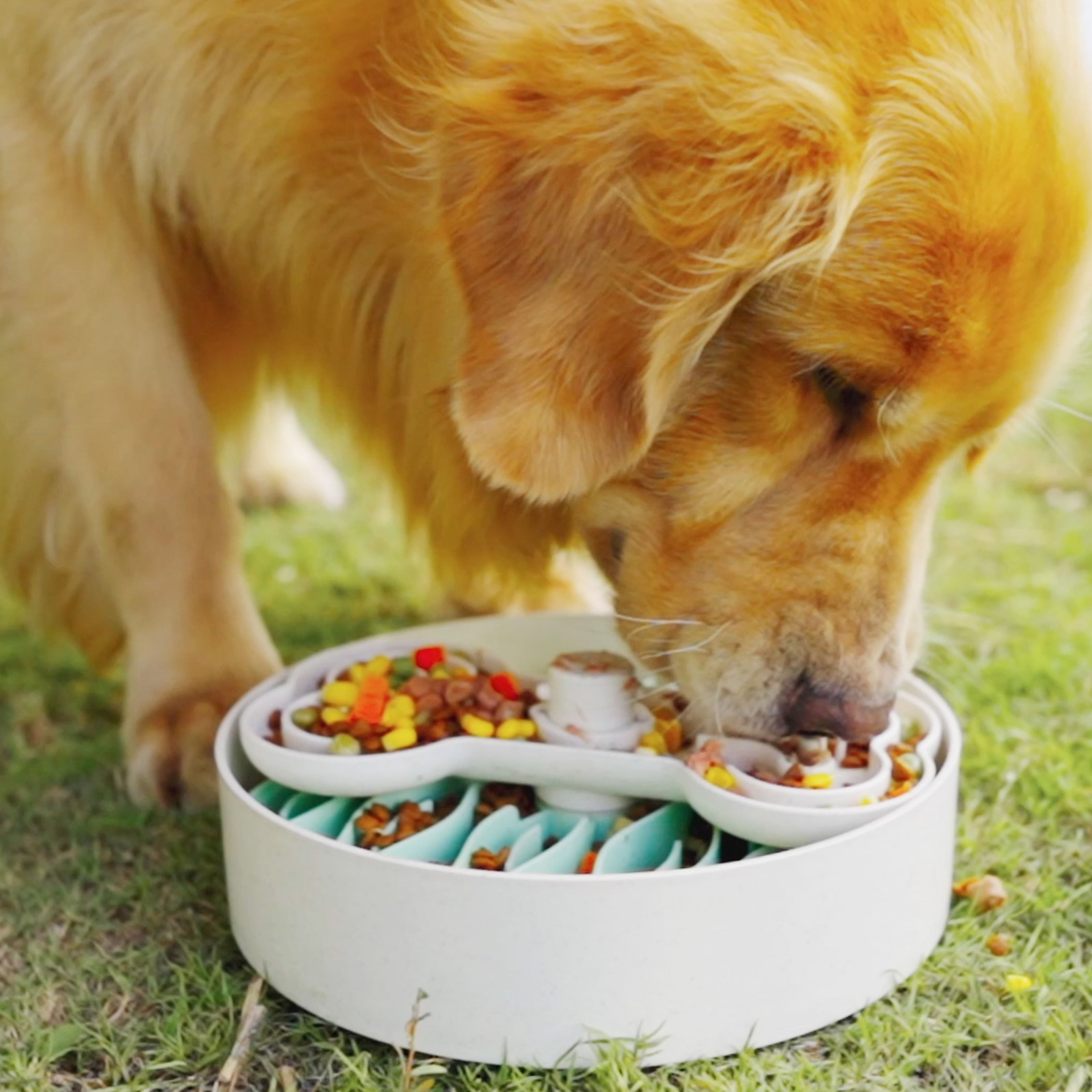Understanding dog vomiting - what pet owners need to know
As a dog owner, you're likely to encounter vomiting at some point. While occasional vomiting may not be cause for alarm, it's important to understand the potential causes and know when to seek veterinary care.
Dog vomiting involves the forceful ejection of stomach contents, often accompanied by abdominal heaving and nausea. This differs from regurgitation, which is a passive process without abdominal contractions.
Acute vomiting may result from dietary indiscretion, sudden diet changes, or ingestion of toxins, while chronic vomiting could indicate more serious underlying conditions like liver disease or cancer.


It's crucial to recognize when your dog's vomiting requires medical attention. Seek veterinary care if you notice:
- Frequent or persistent vomiting
- Blood in the vomit
- Lethargy, weakness or other concerning symptoms
- Inability to keep water down
- Suspected ingestion of toxins or foreign objects
Identifying the underlying cause is essential in addressing your dog's vomiting. Your vet may perform diagnostic tests like bloodwork, fecal exams, or imaging to determine appropriate treatment. Now, let's explore some common causes of dog vomiting to help you better understand what might be affecting your furry friend.
Common causes of dog vomiting
There are several reasons why your furry friend might be throwing up. Some of the most common causes include:
- Dietary indiscretion - eating something they shouldn't have, like garbage or spoiled food
- Sudden changes in diet
- Food allergies or intolerances
- Intestinal parasites
- Viral or bacterial infections
- Ingestion of toxic substances
- Heatstroke
- Pancreatitis
- Kidney or liver disease
The frequency and severity of vomiting are key factors in determining the cause. Occasional, isolated incidents are often not a major concern. However, frequent or severe vomiting can indicate more serious underlying health issues.
When investigating why your dog is vomiting, pay attention to any additional symptoms that may be present, such as lethargy, loss of appetite, diarrhea, abdominal pain or bloating, blood in the vomit, or fever.
Acute, severe vomiting may be caused by ingestion of foreign objects, bloat (gastric dilatation-volvulus), or certain toxins. These situations require immediate veterinary attention. Chronic vomiting may be caused by conditions such as inflammatory bowel disease, cancer, or hormonal imbalances.
*Proper diagnosis by a veterinarian is crucial for determining the underlying cause and appropriate treatment. With this in mind, let's look at some signs that indicate your dog's vomiting may be more serious and require immediate attention.
When to worry - signs of serious vomiting in dogs
While occasional vomiting in dogs is common, certain signs indicate your dog's vomiting may be more serious and require veterinary attention. Here are some key indicators of when to worry:
- Frequent or persistent vomiting lasting more than 24 hours
- Vomiting accompanied by other concerning symptoms like lethargy, weakness, fever, or abdominal pain
- Presence of blood in the vomit
- Inability to keep water down
- Suspected ingestion of a toxic substance or foreign object
- Vomiting in a puppy, senior dog, or dog with existing health conditions


The color and consistency of the vomit can provide important clues about the cause:
- Bright red vomit indicates fresh blood and could signal stomach ulcers or trauma
- Coffee ground-like vomit may contain digested blood, pointing to ulcers or other GI issues
- Yellow or green vomit often contains bile and may occur with liver or gallbladder problems
- White, foamy vomit can be a sign of bloat, especially in large breed dogs
Pay close attention to any changes in behavior or additional symptoms like loss of appetite, diarrhea, excessive thirst or urination, collapse or difficulty standing, abdominal swelling or pain, or seizures.
Remember that vomiting can be a symptom of many serious conditions including pancreatitis, kidney disease, liver failure, or intestinal obstruction. If you're unsure about the severity of your dog's vomiting, it's always best to consult with a veterinarian for proper diagnosis and treatment. However, if your dog's vomiting doesn't seem severe, there are some home remedies you can try first. Let's explore these options next.
Home remedies and treatment for dog throwing up
If your dog is vomiting, there are several home remedies you can try before seeking veterinary care:
- Withhold food for 12-24 hours to allow the stomach to settle
- Offer small amounts of water frequently to prevent dehydration
- Gradually reintroduce a bland diet of boiled chicken and rice in small portions
- Try giving your dog ice cubes to lick instead of large amounts of water
- Offer a teaspoon of canned pumpkin (not pie filling) to help settle the stomach
For a natural dog vomiting remedy, you can try:
- Ginger - Known for its anti-nausea properties, give 1/4 teaspoon for small dogs or 1/2 teaspoon for larger breeds
- Probiotics - To help restore beneficial gut bacteria
- Bone broth - Provides hydration and nutrients in an easily digestible form



When considering what to give a dog for vomiting, avoid human medications unless directed by a veterinarian. Some over-the-counter options that may be safe include Pepcid AC (famotidine) or Imodium (loperamide), but always consult your vet for proper dosing.
Recognize when home remedies are not enough. Seek veterinary care if vomiting persists for more than 24 hours, there is blood in the vomit, your dog shows signs of lethargy, weakness, or pain, or you suspect ingestion of a toxic substance or foreign object. In these cases, your vet may need to provide more advanced treatment options. Let's take a look at what those might entail.
Veterinary treatment options for dog vomiting
When home remedies aren't enough to stop your dog's vomiting, veterinary intervention may be necessary. Your vet has several treatment options available, depending on the underlying cause and severity of symptoms.
Common veterinary treatments for dog vomiting include:
- Antiemetic medications like maropitant (Cerenia) or ondansetron to control nausea and vomiting
- Fluid therapy to treat or prevent dehydration
- Gastroprotectants like famotidine or omeprazole to reduce stomach acid
- Antibiotics if a bacterial infection is suspected
- Antacids to coat and protect the stomach lining
- Prescription bland diets formulated for sensitive stomachs
To determine the best treatment, proper diagnosis is key. Your veterinarian may recommend diagnostic tests such as blood work, fecal tests, X-rays, ultrasound, or endoscopy.
Know when to take your dog to the vet for vomiting. Seek immediate veterinary care if vomiting persists for more than 24 hours, there is blood in the vomit, your dog is lethargic or showing signs of pain, vomiting is accompanied by other concerning symptoms, or you suspect ingestion of a toxic substance or foreign object.
Addressing the underlying cause is crucial in treating dog vomiting. Your veterinarian may prescribe specific treatments based on the diagnosis, such as surgery for an intestinal blockage or medication for conditions like pancreatitis or inflammatory bowel disease. While treatment is important, prevention is always better. Let's explore some ways you can help prevent vomiting in your dog.
Preventing dog vomiting - tips for pet owners
As a pet owner, there are several steps you can take to help prevent dog vomiting and maintain your furry friend's digestive health:
- Feed smaller, more frequent meals throughout the day instead of one or two large meals
- Avoid sudden changes in diet - introduce new foods gradually over 5-7 days
- Keep your dog away from garbage, spoiled food, and other potential toxins
- Provide fresh, clean water at all times to prevent dehydration
- Limit table scraps and human food, which can upset your dog's stomach
- Use a slow feeder or puzzle feeder to prevent rapid eating and reduce the risk of indigestion


Slow feeders, such as puzzle feeders, can be particularly effective in preventing dog indigestion. These specially designed bowls or mats make it more challenging for dogs to gulp down their food, encouraging slower eating and better digestion. This can significantly reduce the likelihood of vomiting, especially in dogs that tend to eat too quickly. By extending meal times and promoting more mindful eating, slow feeders can help your dog's digestive system process food more efficiently.
If your dog has recently vomited, try offering small amounts of boiled chicken and white rice, lean ground beef mixed with cooked white potato, or canned pumpkin (not pie filling) to help settle the stomach. Probiotics formulated for dogs can also support digestive health.
Monitor your dog after meals. If you notice your dog throwing up after eating, it could indicate food allergies or intolerances, eating too quickly, or gastrointestinal issues requiring veterinary attention.
While it's common to see a dog vomiting but acting normal, be alert for repeated vomiting over 24 hours, vomiting accompanied by lethargy, diarrhea, or loss of appetite, blood in the vomit, or signs of abdominal pain or bloating.
Regular veterinary check-ups, keeping vaccinations up-to-date, and maintaining a consistent feeding schedule are also important preventive measures. By following these tips, you can help reduce the likelihood of vomiting episodes and promote your dog's overall digestive health. However, when it comes to puppies, there are some special considerations to keep in mind. Let's take a closer look at vomiting in puppies.
Special considerations for puppy vomiting
Vomiting in puppies requires special attention, as their young bodies are more vulnerable to complications. If you're wondering why your puppy is throwing up, consider factors such as dietary indiscretion, parasites, viral infections, stress, and food transitions.
Puppies can become dehydrated much more quickly than adult dogs. If your puppy keeps throwing up, it's crucial to monitor their hydration levels closely.
Seek veterinary care promptly if your puppy is vomiting. Unlike adult dogs, puppies may not be able to handle even short periods of vomiting without medical intervention.
Preventive measures for puppy vomiting include:
- keeping up with vaccination schedules
- regular deworming as recommended by your vet
- supervising your puppy to prevent ingestion of foreign objects
- introducing new foods gradually
- providing a calm, stress-free environment
If your puppy vomits more than once, shows signs of lethargy, or is unable to keep water down, don't hesitate to contact your veterinarian. Early intervention is key to preventing serious complications in young dogs.
By understanding the causes, treatments, and prevention strategies for dog vomiting, you can better care for your furry friend's digestive health. Remember, while occasional vomiting may not be cause for alarm, it's always best to err on the side of caution and consult with your veterinarian if you have any concerns about your dog's health.
If you're transitioning your puppy to a new food, consider using a slow feeder to help with the transition process. This can help prevent digestive issues, including vomiting, that may arise from abrupt diet changes.
For dogs of all ages, it's important to understand why dogs might eat too fast and how to address this behavior. Fast eating can lead to various digestive problems, including vomiting, so addressing this issue can significantly improve your dog's overall health.


















댓글 남기기
모든 댓글은 게시 전 검토됩니다.
이 사이트는 hCaptcha에 의해 보호되며, hCaptcha의 개인 정보 보호 정책 과 서비스 약관 이 적용됩니다.